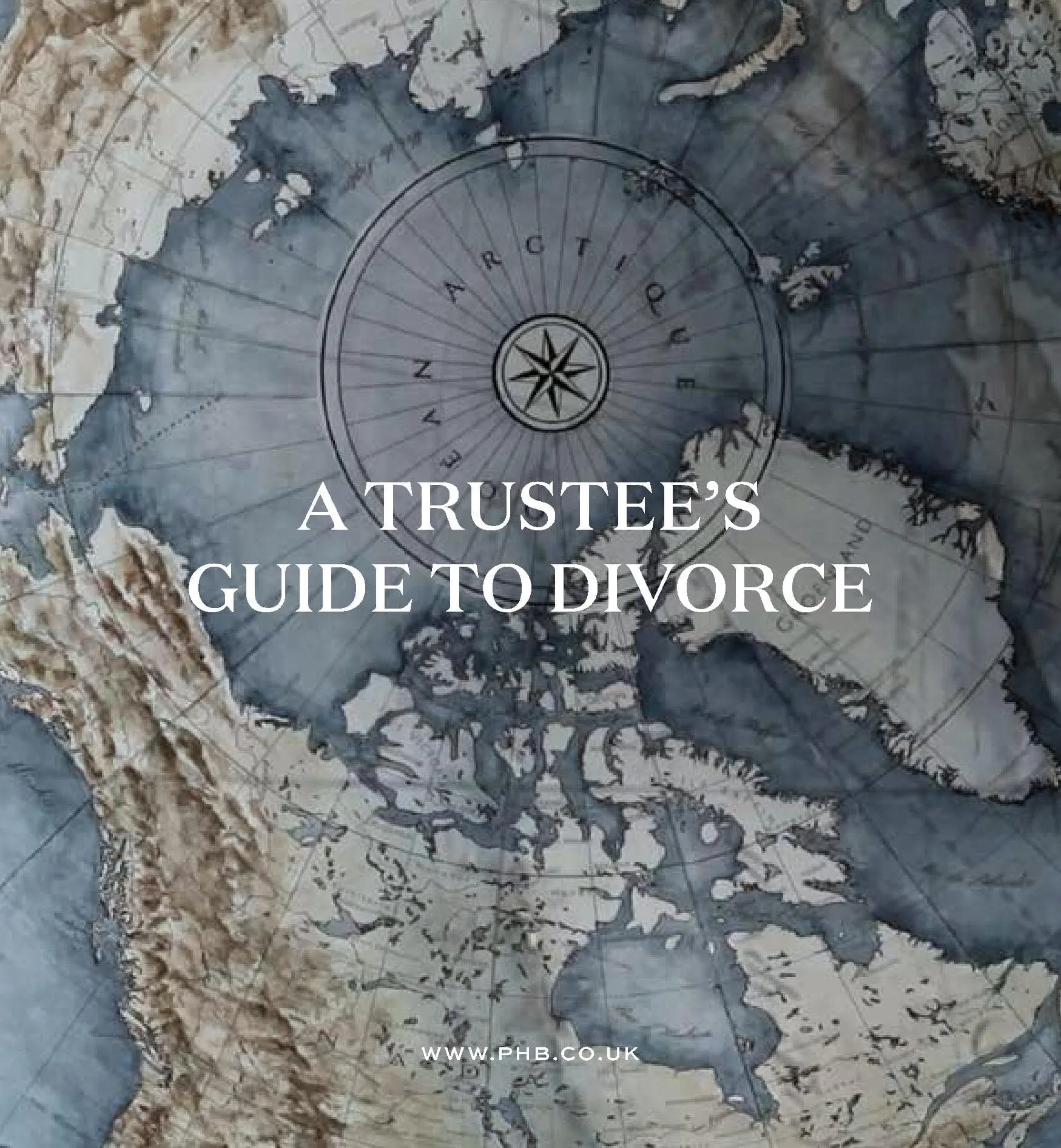What procedural rules apply?
The general rule under the Family Procedure Rules 2010 (FPR) regarding financial remedy proceedings is that the court will not make an order requiring one party to pay the costs of another (the “no order as to costs” rule) (FPR 28.3(5)).
However, as far as costs are concerned, the proceedings between the parties to the marriage and a third party who has been joined to proceedings are not financial remedy proceedings and the “no order as to costs” rule does not apply (see Baker v Rowe [2009] EWCA Civ 1162 which dealt with the equivalent provision in the old FPR 1991).
Does this mean that one should turn to the Civil Procedure Rules and the default rule that costs follow the event under CPR 44.2(2)(a)?
The answer is “no” as the proceedings are still governed by the FPR and the FPR 28.2(1) disapplies expressly CPR 44.2(2).
So where does this leave trustees in this procedural no-man’s land? The applicable rule is simply that “The court may at any time make such order as to costs as it thinks just.” (FPR 28.1). This may very well be frustrating for trustees who seek certainty as to the consequences for the trust fund.
Case law has provided some comfort that even with this “clean sheet”:
“the fact that one party has been unsuccessful, and must therefore usually be regarded as responsible for the generation of the successful party’s costs, will often properly count as the decisive factor in the exercise of the judge’s discretion” (Baker v Rowe 25).
The principle that the starting point is that costs follow the event was set out in Gojkovic v Gojkovic (No 2) [1991] 2 FLR 233, which received approval more recently in Solomon v Solomon & Ors (Rev 1) [2013] EWCA Civ 1095.
How can trustees “win” in divorce proceedings?
Where the third party who has been joined is an individual it may be obvious who has been successful. For example, if one spouse has claimed that the third party is the legal owner of assets that are, beneficially, the property of the other spouse it will usually be apparent who has “won.”
However, the case may not be so clear-cut for trustees. One of the cornerstones of trustees’ involvement in divorce proceedings is neutrality. To do otherwise leaves them exposed to an adverse costs order. But in this case, how can a trustee be said to be successful or not? Even if a spouse were unsuccessful in arguing that a trust was a nuptial settlement (for example), if the trustees have not taken an active contrary position they have not “won”. Nonetheless, it seems to be a very harsh outcome that by adopting the very approach that is intended to protect them from adverse cost consequences, trustees are always doomed to bear their own costs.
What if an order makes no provision as to costs?
Where an order is silent on costs (and the no order as to costs rule does not apply) the general rule is that no party is entitled to their costs. This is provided for by CPR 44.10(1), which also applies to family proceedings (FPR 28.2(1). However, this is a general, not an absolute rule and the court may make a retrospective order, where no order has previously been made (Timokhina v Timokhin [2019] EWCA Civ 1284).
What factors will the court consider when making an order?
CPR 44.2(4) and (5) set out the factors a court will consider when deciding what order to make as to costs. Whilst these provisions do not apply to financial remedy proceedings, as we have established, the proceedings between the parties to the marriage and a third party are not financial remedy proceedings as far as costs are concerned.
When deciding what (if any) costs order to make, the court must consider all the circumstances of the case, including:
a) The conduct of the parties, which includes:
- conduct before, as well as during, the proceedings and in particular the extent to which the parties followed the Practice Direction – Pre-Action Conduct or any relevant pre-action protocol;
- whether it was reasonable for a party to raise, pursue or contest a particular allegation or issue;
- the manner in which a party has pursued or defended its case or a particular allegation or issue; and
- whether a claimant who has succeeded in the claim, in whole or in part, exaggerated its claim.
b) whether a party has succeeded on part of its case, even if that party has not been wholly successful; and
c) any admissible offer to settle made by a party which is drawn to the court’s attention, and which is not an offer to which costs consequences under Part 36 apply.
Note that although Part 36 of the CPR does not apply, it is open to the parties to make offers “without prejudice save as to costs” following the principles in Calderbank v Calderbank [1975] 3 All ER 333, even though without prejudice offers are not permissible in the financial remedy proceedings themselves (under FPR 28.2(8)).
This article, was written by Trust and Divorce expert Jessicsa Henson, for TL4. Our specialist team have created a Trustee’s Guide to Divorce, which is an essential guide for trustees seeking to future-proof against or navigate through divorce. Click here to read our guide. To seek Trusts and Divorce advice, please contact Jessica Henson, or alternatively, telephone on 020 7465 4300.






